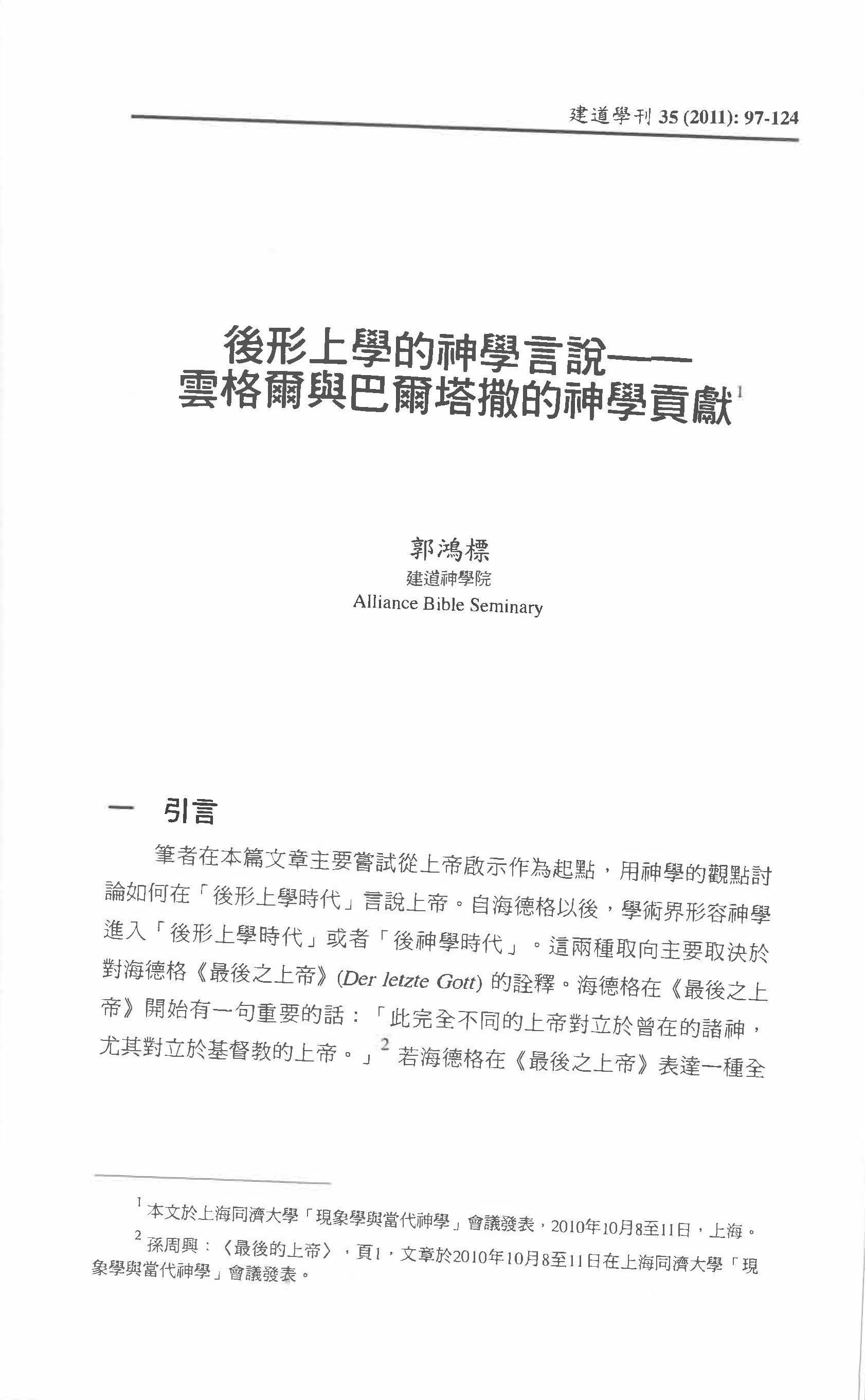後形上學的神學言說──雲格爾與巴爾塔撒的神學貢獻/郭鴻標
撮要
本文討論兩位德語世界的神學家雲格爾(Eberhard Jüngel)與巴爾塔撒(Hans Urs von Balthasar)的神學,如何產生對尼采及海德格思想挑戰的回應。雲格爾的神學注重詮釋耶穌基督為一種語言事件,是一種在海德格甚至分析哲學以後的一種神學回應。海德格晚年注重赫爾德林(Friedrich Hölderlin)的詩,透過藝術的美接近那位神聖者。巴爾塔撒注重從美學角度演繹神學,不單循理性角度邏輯地推論耶穌基督事件的理由和意義,同時從語言以外的美感經驗思考上帝。巴爾塔撒並非反理性,而是首先確定那位超越的上帝是至真、至善、至美的存有。巴爾塔撒並不停留在個人主觀的美感經驗,而是把上帝道成人身的耶穌基督作為上帝榮美的最深層表達。筆者覺得雲格爾和巴爾塔撒的神學是一種回應海德格的神學資源。
ABSTRACT
This article is discussing the theologies of two German theologians, namely Eberhard Jüngel and Hans Urs von Balthasar, how they response to the challenges of Friedrich Nietzsche and Martin Heidegger. Jüngel interpretes Jesus Christ as a language event, which is a kind of theological response of Heidegger and Language Philosophy. Heidegger loved the poems of Friedrich Hölderin at his old ages, through the artistic Beauty to reach the “Holy.” Balthasar emphasizes using Aesthetics interpreting Theology, not only following logical deduction of the reason and meaning of Jesus event, but basing on aesthetical experience beyond language to think about God. Balthasar is not anti-reason, but affirm firstly the transcendent God as truthful, goodness, and beautiful Being. Balthasar does not stop in individual aesthetical experience, but arguing the incarnated Jesus Christ as the deepest expression of the
Glory of God.
原載於《建道學刊》35期(2011),頁97-124。
Latest Articles
新手牧者研究計劃(三):新手牧者的身心靈狀態 / 盧慧儀
2025 年 11 月 19 日
個體與關係:滕近輝思想中「深化」的靈性觀 / 倪步曉
2025 年 11 月 18 日
香港九龍塘基督教中華宣道會之起源和發展史/陳智衡
2025 年 10 月 20 日
Highlights
[電子書]困境與抉擇:「建道研究中心30週年誌慶」跨學科研討會論文集/廖炳堂、倪步曉主編
2025 年 1 月 2 日
從梧州到長洲:建道神學院125年的挑戰與恩典 / 陳智衡
2023 年 10 月 1 日
微小教會的見證/高銘謙
2023 年 6 月 1 日
作者簡介
郭鴻標
神學系教授
副院長 (行政)








